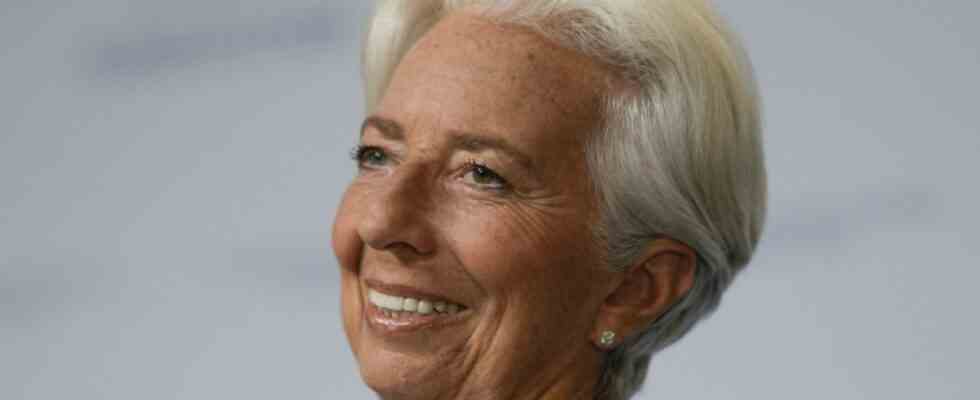Christine Lagarde begins her remarks with a joke. “None of them has aged too badly,” said the President of the European Central Bank (ECB) on Monday in the Economic Affairs Committee of the European Parliament in Brussels. The Frenchwoman is invited to her usual hearing on the panel, but past appointments have been virtual because of the pandemic. Now Lagarde is back in person. Otherwise, her lecture and the exchange with the MPs are rather serious. After all, it’s about sensitive issues such as high inflation and the increased risk premiums for government bonds in southern European countries.
Lagarde first unravels the latest data on price increases. Behind the inflation rate in the euro countries for May of 8.1 percent is an energy price increase of a breathtaking 39.2 percent. But groceries were also 7.5 percent more expensive than in the same month last year, which is partly due to the decline in grain exports from Ukraine, says the 66-year-old. Inflation will remain “undesirably high” for some time, she concedes, repeating her announcement that she will raise interest rates by 0.25 percentage points in July and then again in September.
That’s not enough for some parliamentarians: “What the ECB has been discussing so far is far too hesitant,” complains CSU MP Markus Ferber, spokesman for economic policy for the Christian Democratic EPP group. Rasmus Andresen, leader of the German Greens in the European Parliament, warns that “the interest rate hike will not curb inflation, but could trigger a recession”.
Another hot topic is the new instrument against excessively high risk premiums for bonds from highly indebted countries. Lagarde presented this initiative last week. Ferber sees this critically: “If the talk is now primarily about new purchase programs to lower the interest burden on the southern states, that sends the completely wrong message to the market.” Joachim Schuster, the SPD’s economic policy spokesman in the European Parliament, on the other hand, calls for a common EU financial policy to prevent a repeat of the euro crisis: “We need a common European tax and financial policy in Europe so that the current crisis does not affect some EU -Member States becomes a sovereign debt crisis.”

